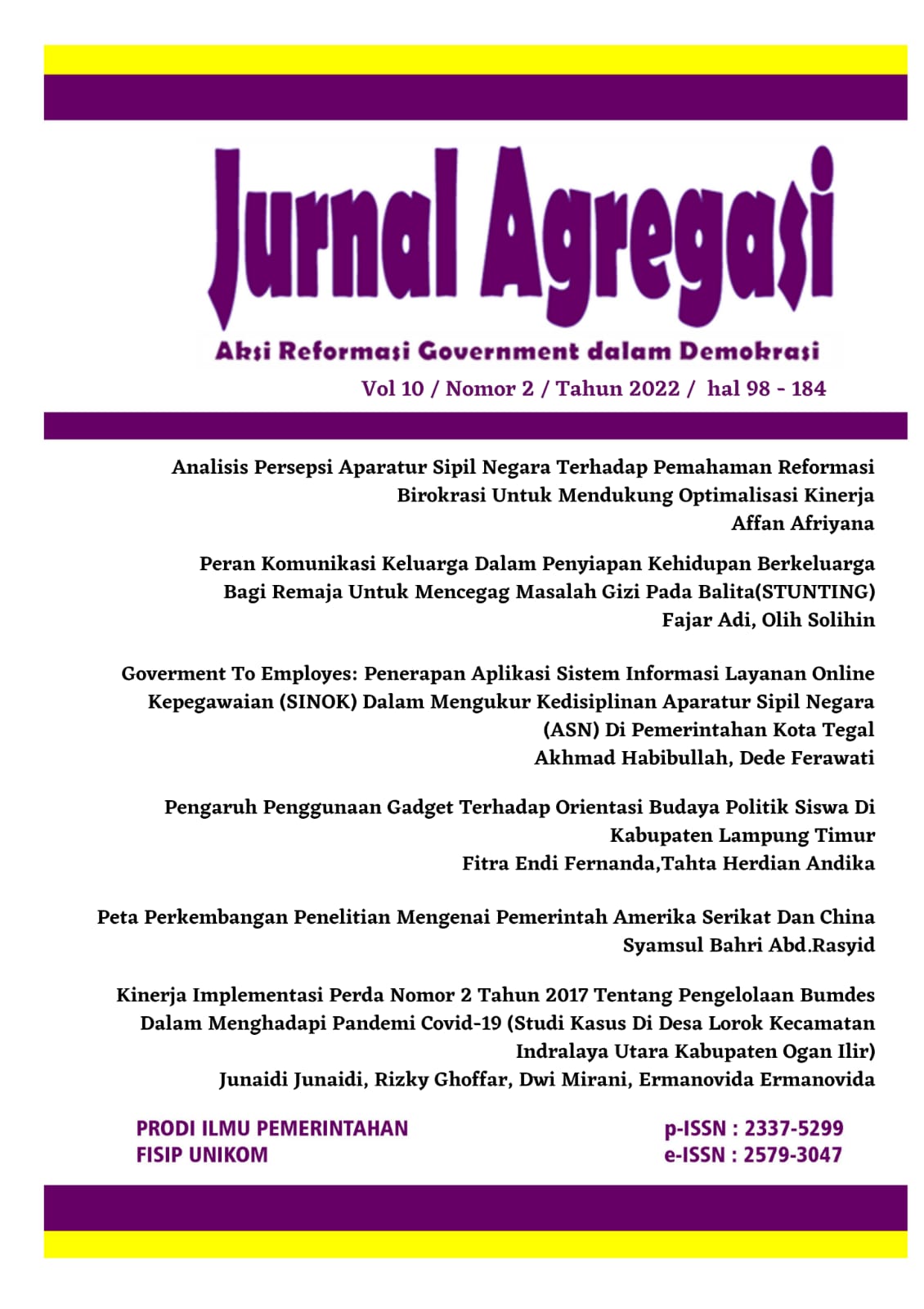KINERJA IMPLEMENTASI PERDA NOMOR 2 TAHUN 2017 TENTANG PENGELOLAAN BUMDES DALAM MENGHADAPI PANDEMI COVID-19 (STUDI KASUS DI DESA LOROK KECAMATAN INDRALAYA UTARA KABUPATEN OGAN ILIR)
DOI:
https://doi.org/10.34010/agregasi.v10i2.6075Keywords:
policy implementation, implementation performance, village-owned enterpriseAbstract
The purpose of this study is to assess the effectiveness of Regional Regulation No. 2 of 2017 on Procedures for the Establishment and Management of BUMDes during the Covid 19 Pandemic and to map the policy and environmental factors affecting its implementation. This research employed qualitative methods and a case study approach. BUMDes Lorok Gemilang was chosen as the case because it is located in Lorok Village, Indralaya District, Ogan Ilir Regency. The study's findings indicate that the Regional Regulation No. 2 of 2017 on Procedures for the Establishment and Management of BUMDes has been implemented successfully. From a coverage standpoint, four distinct types of BUMDES Business Units existed prior to and following the Copid 19 Pandemic: PAM Pasimnas, Village Markets, Tent Rentals, and Car Rentals. From a service accuracy standpoint, the various types of BUMDes businesses that have been formed adhere to the Regional Regulation and are in line with Lorok Village's needs and potential. Accountability-wise, BUMdes management activities can be justified to the community. From a programmatic standpoint, all current BUMDes Business Units have met the needs and expectations of the Lorok Village Government and Lorok Village Community. Policy environmental factors affecting implementation performance include the Actor's interests in Promoting the Establishment and Management of Village-Owned Enterprises; the characteristics of ruling institutions and regimes; and compliance and responsiveness.
Downloads
Downloads
Published
Issue
Section
License
This work is licensed under :

Creative Commons Attribution-NonCommercial 4.0 International License








